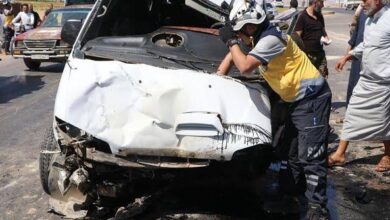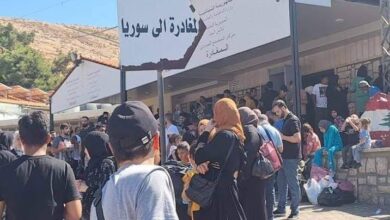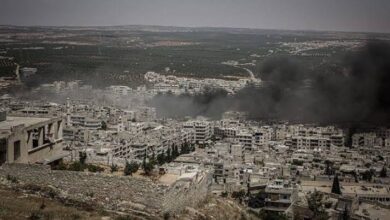
Turkish sources deny Assad regime’s allegations about cutting off water in Al-Hasaka
Turkish security sources denied, in a statement to Anadolu Agency, the Assad regime’s allegations regarding Turkey’s cutting of water from “Alouk Station” that meets the needs of the Syrian province of Hasaka.
The sources stated that the Assad regime is trying to mislead international public opinion by hiding the facts, and that the allegations of the Assad regime do not reflect the truth.
The sources explained that the water needs of the Hasakah region are being met through 12 of the 30 wells in the “Alouk Water” plant.
The source pointed out that Assad regime cut off electricity 10 times for 27 hours last November, and twice for 30 hours in the first week of December, due to the maintenance of the electrical station (which feeds the water station).
The source explained that Assad regime cut off the electricity supply on December 6, and deliberately endangered the lives of the people of Tal Abyad, Ras al-Ain and Hasakah, noting that for this reason the people of the region were left without water.
The sources added that the electrical energy used in the “Alouk Water Station” came from Tishreen Dam, and the sources indicated that the person responsible for repairing faults in the “Alouk Water” station confirmed that the source of the problem is not Turkey, and that the Assad regime does not provide the electrical energy needed to operate the pumps with sufficient capacity.
Last August, Turkey’s permanent representative to the United Nations, Feridun Senirlioglu, denied allegations that Turkey was cutting off water from northeastern Syria, stressing that it was completely unfounded.
Senirlioglu confirmed that with Turkey’s efforts, the station had begun to supply electric power, which again distributed water.
The deputy coordinator of the United Nations Office for the Coordination of Humanitarian Affairs in Syria, Ramesh Raja Singham, during a session of the UN Security Council, to discuss the humanitarian situation in Syria, said that there are frequent water cuts in the city of Hasaka and the Al-Hol camp, and its impact on 460,000 civilians in the region.




